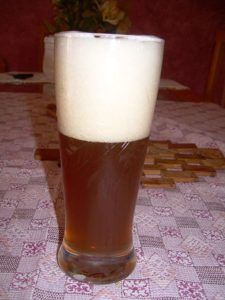Friday

BYCU
Interesting introduction to absinthe:
"THE NOTORIOUS ABSINTHE, which scandalized late 19th-century Europe, was embraced by the literary and artistic café society of the mid-1800s. Purportedly addictive, it was the drink of choice for artists, writers, and poets, most notably Toulouse-Lautrec, Van Gogh, Baudelaire, Oscar Wilde, Rimbaud, and Verlaine. All had quite the passion for the “Green Fairy,” so named for the signature cloudy green color and alleged hallucinogenic properties. Wormwood is the ingredient in absinthe that was thought to be the cause of such visionary inspiration, as well as the insane actions of creative types. Van Gogh evidently was partaking of the aperitif at the time of the infamous ear incident."
The Ultimate Bar Book: The Comprehensive Guide to Over 1,000 Cocktails
I've never tried absinthe, and I can't say I'm inclined to. I always thought it was a type of liquid marijuana, albeit weak. I also thought it was illegal, though a quick Google search brought up a dozen sites that claim it is now legal. From Wikipedia:
In 2007, the Alcohol and Tobacco Tax and Trade Bureau (TTB) effectively lifted the long-standing absinthe ban, and it has since approved many brands for sale in the US market. This was made possible partly through the TTB's clarification of the Food and Drug Administration's (FDA) thujone content regulations, which specify that finished food and beverages that contain Artemisia species must be thujone-free. In this context, the TTB considers a product thujone-free if the thujone content is less than 10 ppm (equal to 10 mg/kg). This is verified through the use of Gas Chromatography-Mass Spectrometry. The brands Kubler and Lucid and their lawyers did most of the work to get absinthe legalized in the U.S., over the 2004-2007 time period.
The import, distribution, and sale of absinthe is permitted subject to the following restrictions:
The product must be thujone-free as per TTB guidelines,
The word "absinthe" can neither be the brand name nor stand alone on the label, and
The packaging cannot "project images of hallucinogenic, psychotropic, or mind-altering effects."
Chesterton, I'm reasonably certain, thought absinthe evil, but ten minutes of searching the Internet and my GKC library didn't bring the quote(s) up, so y'all will just have to trust my absinthe-free memory on that one.
